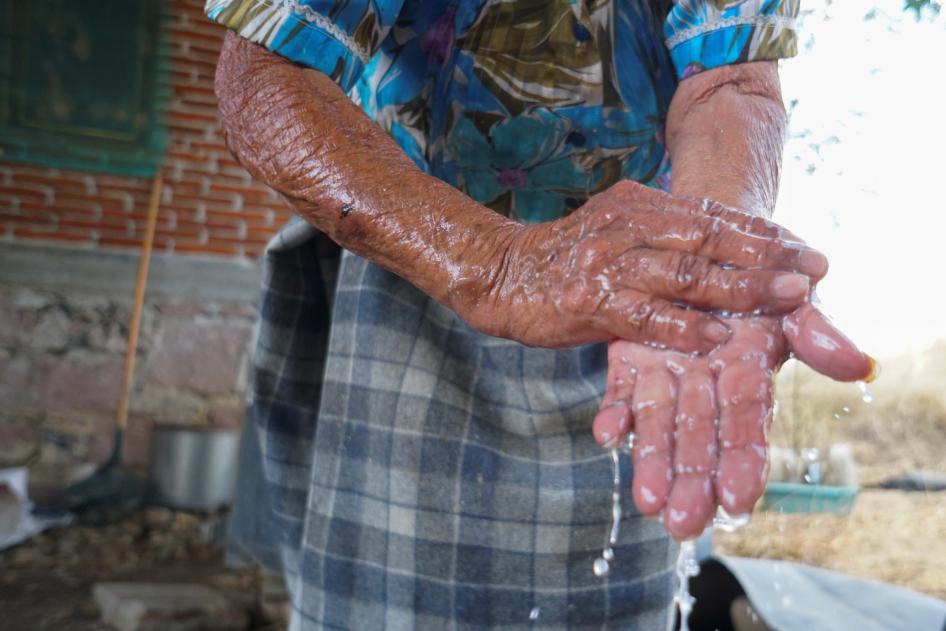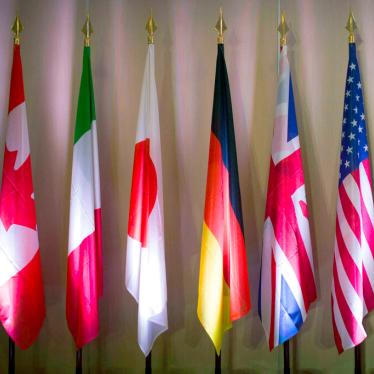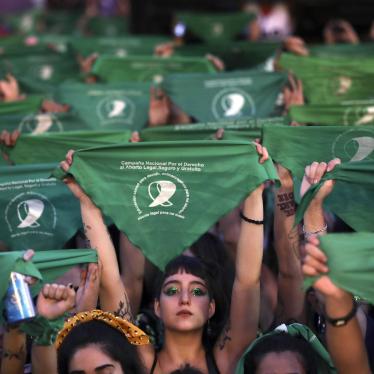President Jair Bolsonaro has been peddling the myth that only older people are at risk from Covid-19. At the same time, he has repeatedly dismissed their needs. His disinformation and callous remarks about the country’s 28 million people over 60 make it harder for public health officials to save lives.
Data from Europe and the United States shows that people of all ages are susceptible to Covid-19, including to severe illness and death. But those over 60 are at higher risk of serious or fatal complications. About 95 percent of the deaths from Covid-19 in Europe have been people over 60.
Yet President Bolsonaro has openly rejected the government’s duty to protect older people. “Each family has to protect its elderly, not throw that on the State,” he said in a television interview on April 8.
He is wrong. For one thing, more than four million older people live alone in Brazil. The government is obligated to protect them, as well as those who live with families or in institutions. The pandemic increases the risks to their health, but also to violence, neglect, and other abuses. Government services can extend a lifeline.
Data from a Ministry of Women, Families and Human Rights hotline indicates that the Covid-19 crisis has brought a significant daily increase in rights violations against older people, including mistreatment and exposure to health risks. Those who work with victims of domestic violence confirm a rise in violence against older women by their partners, their children, or caregivers. And the proportion of women 60 and over has increased in the past decades to 23.8 percent of women and girls over 15.
Erika Bueno, a lawyer at a support center in southern São Paulo City, recently helped an older woman whose son had assaulted her, and another whose abusive ex-husband had threatened her. Especially during a quarantine, the government should reach out to make sure that people know how to report abuses, Bueno said. The public defender’s office in São Paulo State is allowing people to report domestic violence online, for example, and getting judges to issue restraining orders or other measures remotely instead of requiring victims to appear in their office.
The president could be using his megaphone to get the word out about such programs. He could be extending support for food and medicine and other services to older people and others practicing physical distancing throughout the nation, reducing their forced dependence on their families and others and decreasing their risk for violence and abuse. But instead of projecting concern, broadcasting solid information, and directing life-saving aid, President Bolsonaro dismisses the value of older people and others at high risk.
To make matters worse, the president is picking a fight—not against the virus but against Brazil’s Health Ministry, many governors, and officials at all levels who are trying to follow scientific evidence in public policy to stem the tide of the pandemic. On April 16, President Bolsonaro fired Health Minister Luis Henrique Mandetta, who had been calling on all Brazilians to practice social distancing.
Instead of supporting such protocols, President Bolsonaro has suggested that only older people should stay at home, while other family members come and go from work. Health experts say that will not stop the spread of the disease or spare those who stay at home. Indeed, in other countries, most infections have been spread inside households. Some infected people show no symptoms, and bring the disease home to family members without knowing it.
Researchers from Imperial College London predict that requiring only older people to isolate could double Brazil’s number of Covid-19 deaths. The National Front of Mayors, representing Brazil’s largest cities, warned on March 27 that ending the protocols they call "social restraint" could lead to overwhelmed hospitals and the collapse of the country’s publicly funded healthcare system..
Governments have an obligation to protect everyone. Older people are no exception. The country’s leaders at the municipal, state, and federal levels—all the way to the man at the top—need to unite to fight the pandemic. They need to support protocols that protect everyone from exposure and prevent discrimination in access to treatment. They need to care for those who get sick. And they need to defend people from rising domestic violence and neglect related to the pandemic.









